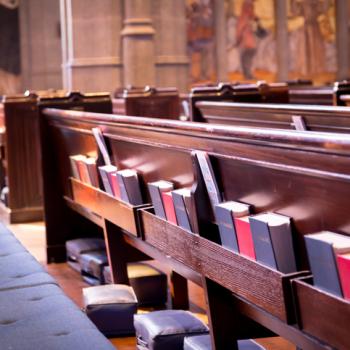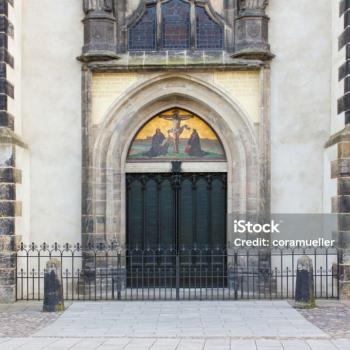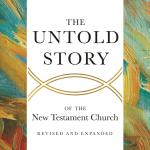
I really enjoy being around people who are sunny optimists. They make the world better. Optimists are best when they are grounded in reality. They know and recognize the reality in any given situation, and they are undaunted. They can maintain their undaunted spirit because they have an innate belief that a better time is coming. Optimists help us most when they create in the rest of us a believe belief that a better time is coming. As such they can be flat inspiring. Optimism is a good thing. Frankly, I wish I were more optimistic in my own spirit. I think it would do me good.
Frequently we use the terms optimistic and hopeful interchangeably, and they are very similar in common usage. From a theological perspective, however, they are very different. The optimist always looks on the bright side. A small boy after downing his glass of milk declared, “I’m an optimist. The glass is half empty.” His mother replied, “looking at the glass as half empty is pessimism, son.” To which the mischievous boy said with a wry grin, “Not if you don’t like what is in it!”[1] Optimism points us to a better future, but that is not hope. At least, it is not the theological virtue of hope.
Hope is not the inherent belief that things will suddenly improve. Nor is hope the belief that everything will somehow work out just the way it is supposed to work out. It is not the belief that the glass is half full. Hope is of a different character, and it is both deeper and stronger than optimism. It does not need a basis in events for verification, and it is not dependent on our feelings in the moment for success.
Hope is a quiet certitude in God’s faithfulness. The most consistently reported characteristic of God in the Bible is God’s unfailing love. The Hebrew word hesed can be translated lovingkindness or faithful love and means both. It is the most common word used to describe God in the entire Hebrew Bible. It is because of God’s faithful love, the Hebrew people lived in hope. It is from God’s faithfulness to God’s covenant promises with Israel that the Christian faith was born. Because God has always kept His promises, we can be certain in our hope.
What, however, is the content of hope? This is where the difference between hope and optimism is the starkest. The content of our hope is that someday God will make everything right. The truth will be told, the innocent vindicated, the wicked judged, innocent sufferers healed, broken hearts made whole, and the whole cosmos corrected. Everything wrong will be made right. The writers of Scripture described this future in images like wolves and lambs napping together, and streets of the purest gold.
The content of hope is not merely eternal. Hope also holds that God is at work in every event in our lives. I want to be careful here, we are not to believe that every event in our lives is good. Many events are rotten. Yes, things happen that just should not happen. Christian hope, however, is that God will bend every event in our lives for our eternal good.
Hope, then, is resolute. Optimism often dies. You can watch die beside a grieving mother or at the bedside of someone whose entire future prospects are gone. You can witness the death of optimism in the camps of Germany in or those of China. Optimism’s survival is ultimately dependent on events. If things do not get better eventually, optimism is proved wrong. Then it must be relinquished. Hope, however, is immortal and exists in spite of events. Hope is how the Jewish people survived the exile, and hope is how the Christian faith survived the lions. Hope is how to make it through any circumstance.
The most important evidence of our hope is the work of Jesus. Jesus came into the world as the fulfillment of God’s promises. In His death, Jesus paid the penalty for human sinfulness himself. It is Jesus’ resurrection, however, that provides the ground of our hope. Because Jesus is raised from the dead, all of His words have been vindicated. Because of the resurrection, the down payment on God’s future for the world has been paid. The process by which God’s future for us will be worked out has begun. In short, the only evidence we need for hope in the future is the resurrection of our Jesus the Christ.
[1] From the website 72 Optimist Jokes















